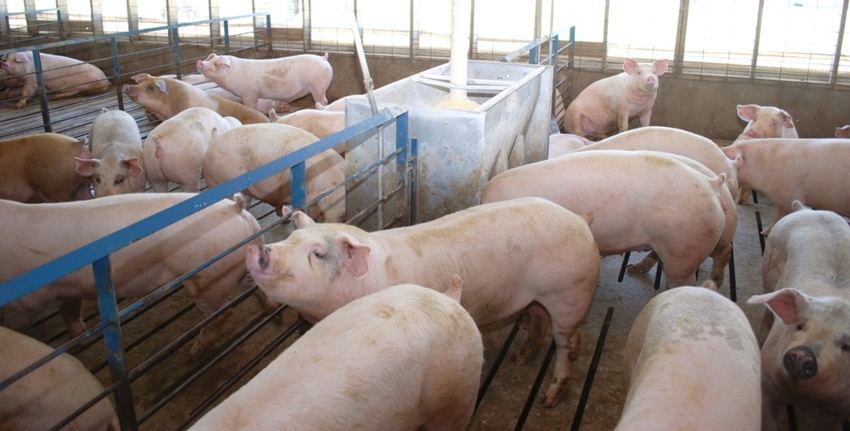Distillation remnants may improve pig stress, pork quality
Diet of Japanese shochu remnants to pigs may be economical way to reduce animals' stress while improving pork quality.
July 21, 2020

Tastier pork may come from pigs that are fed fermented barley remnants after making the Japanese liquor shochu, according to a team of professional brewers and academic farmers in Japan who noted that nutrients in the barley mash may reduce animal stress, resulting in better-tasting pork.
"Kyushu in western Japan is well known historically for making shochu and for its many pig farms. We hope collaborative research projects like ours can directly benefit the local community and global environment," said Yasuhisa Ano, the first author of the research paper published in Food Chemistry. Ano is affiliated with the Kirin Central Research Institute at Kirin Holdings Co. Ltd.
Currently, the mash of leftovers that remains after distilling shochu alcohol is considered industrial waste and is often disposed of in ways that create more climate-changing carbon dioxide, an announcement from the University of Tokyo said. Feeding distillation leftovers to farm animals can improve the animals' quality of life, lower costs for farmers and brewers, appeal to discerning consumers and benefit the environment by reducing food waste.
Japanese shochu can be made from barley, potatoes, rice or other starches first decomposed with mold, then fermented with yeast and finally distilled to an alcohol content usually greater than 20%; Japanese sake, on the other hand, is a fermented drink always made from rice, with an alcohol content typically around 15%, the university explained.
Leftovers lower stress
Researchers at the University of Tokyo fed six pigs a standard diet supplemented with shochu distillation remnants — the dried mixture of barley, mold and yeast left over after distilling shochu.
Pigs fed shochu remnants from three to six months of age had higher amounts of immunoglobulin A antibodies in their saliva, indicating that shochu remnants kept the pigs healthier than the standard diet, the researchers said.
Additionally, pigs fed shochu remnants had lower stress levels than pigs fed the normal diet supplemented with fresh barley, as measured by the amount of cortisol -- a common stress hormone -- in their saliva.
Other studies have linked healthier responses to stress to the amino acids leucine and histidine, which barley shochu contains in abundance, the researchers noted.
The University of Tokyo research team performed additional tests in mice to study the effect of barley shochu distillation remnants on stress. Mice that ate the distillation remnants just once directly before a stressful event returned to normal behavior faster than other mice, the announcement said. The mice who ate the shochu remnants also had normal levels of dopamine in their brains after the stressful event, indicating a better response to stress.
Tastier pork
According to the announcement, the researchers suspected that the lower stress and better health throughout the pigs' lives created higher-quality meat, but they asked flavor experts from Kirin for a blind taste test.
According to the experts' palates, both sirloin and fillet cuts of pork from the pigs fed shochu remnants were higher quality than meat from pigs that ate the standard diet: better umami, tenderness, juiciness and flavor.
"We saw no difference in the pigs' weight gain between the two diets, and the pigs were slaughtered at the standard six months of age, meaning any difference in the quality of meat was not because of a difference in quantity of fat," said associate professor Junyou Li from the University of Tokyo, a co-author of the research publication.
That higher-quality taste was likely due to chemical differences in the meat. Fat from the higher-quality meat melted at lower temperatures, creating a "melt-in-your-mouth" texture. That fat was also made up of a higher percentage of oleic acid, an unsaturated fatty acid shown in other studies to improved levels of "healthy" low-density lipoprotein cholesterol, the announcement said.
"We hope that identifying these benefits for the animals and creating a premium-tasting product for consumers will increase farmers' motivation to try a new diet for their pigs," said professor Masayoshi Kuwahara, director of the University of Tokyo Animal Resource Science Center and last author of the research publication.
You May Also Like


.png?width=300&auto=webp&quality=80&disable=upscale)
